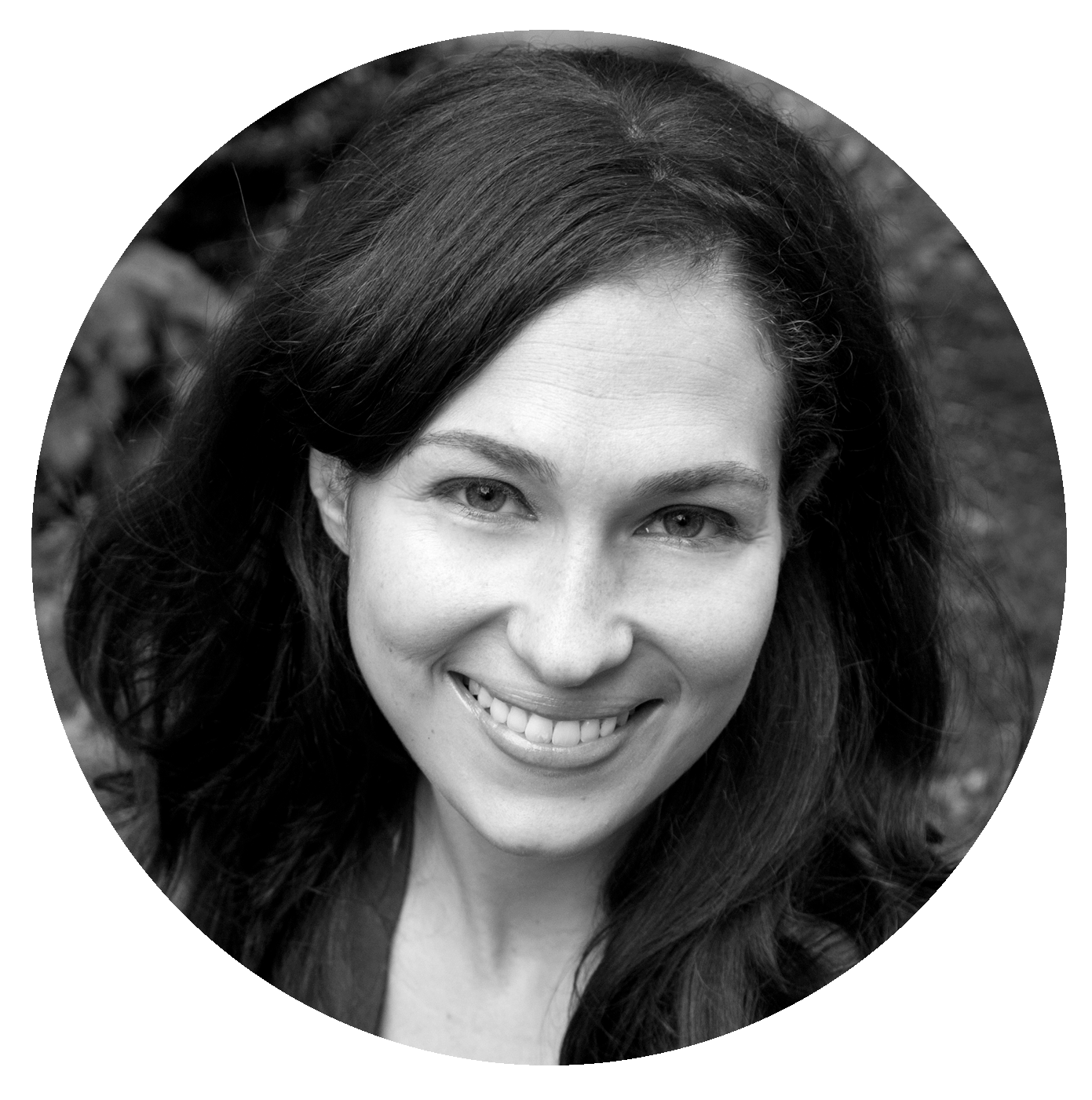America is raising a generation of interns
"People my age expect to start at the bottom," says one 25-year-old. "But in this economy the bottom keeps getting lower and lower."


A free daily email with the biggest news stories of the day – and the best features from TheWeek.com
You are now subscribed
Your newsletter sign-up was successful
IN MANY WAYS, Kate is a perfect reflection of the opportunities and hardships of being young today. She's smart and motivated and has a degree from an Ivy League school, yet at 25 she worries she'll never attain the status or lifestyle of her boomer parents. She majored in political science and has a burnished social conscience, something she honed teaching creative writing in a women's prison. But Kate's most salient — and at this point, defining — generational trait might be that she doesn't have a full-time job. Instead, she has been an intern for a year and a half.
She had one internship at a political organization and another at a media company and is now an unpaid intern at a lobbying firm. To make ends meet, she works as a hostess three or four nights a week, which means she often clocks 15-hour days.
"I don't mean to sound like I have an ego, but I am an intelligent, hard-working person," Kate says. "Someone would be happy they hired me."
The Week
Escape your echo chamber. Get the facts behind the news, plus analysis from multiple perspectives.

Sign up for The Week's Free Newsletters
From our morning news briefing to a weekly Good News Newsletter, get the best of The Week delivered directly to your inbox.
From our morning news briefing to a weekly Good News Newsletter, get the best of The Week delivered directly to your inbox.
It's a refrain heard many times from the millions of 20-something Kates who are scrambling to find jobs with a steady paycheck and benefits. After all, who wants to still be an intern at an age when you should have a 401(k) and a modicum of job security, or at least be earning more than you did at your summer job during high school? "People my age expect to start at the bottom," Kate says, "but in this economy the bottom keeps getting lower and lower."
When I ask Kate how many jobs she's applied for, she says, "Like a million."
Desperate as she is, the Department of Labor doesn't consider her to be unemployed, because she has two jobs. Instead, Kate, who often works more than 60 hours a week, is in a class of workers who don't show up in government reports. She's one of the "permaterns" — those perpetual interns, mostly in their 20s — who have been battered by the recession and are holding out hope that the conventional career wisdom that an internship leads to a job isn't folklore from a bygone era.
The serial intern isn't unique to D.C. You can find young people languishing at film studios in Los Angeles and magazine empires in New York City. The permatern phenomenon points toward wider trends in the economy — namely the cutthroat competition for knowledge-economy jobs, the lack of investment in this generation, and the skills gap between what a generation weaned on a liberal-arts education is trained for and what the in-demand skills and professions are right now (i.e., not another poli-sci or English major). The result? For many in Washington, the American dream starts with a highbrow internship that pays $4.35 an hour — then another, and maybe another.
A free daily email with the biggest news stories of the day – and the best features from TheWeek.com
That's how much Jessica Schulberg, 22, made for the 10 months she worked at the Woodrow Wilson International Center for Scholars, a haven for academics and journalists researching public-policy issues. Every month, before taxes, Jessica was paid a stipend of $700, supplemented by waitressing and bartending.
"I felt like 10 months was a long time to be there," says Jessica. But with only a bachelor's degree, she felt she wasn't qualified for many entry-level jobs, a suspicion confirmed by numerous rejections. The places where she was applying — think tanks and nonprofits — were all "receiving a million applications from people just like me," she says.
So Jessica went with plan B: two years of graduate school to earn a master's in international politics. A partial scholarship made the decision easier, but Jessica says she'll have to go into debt to cover some of the $50,000 a year in tuition. She'll graduate next year.
Somewhat amazingly, Jessica is upbeat about her situation. The internship at the Wilson Center made her feel like one of the lucky ones. During her stint, she assisted foreign-policy heavyweights like Michael Adler, a foreign correspondent for Agence France-Presse, on a book about diplomacy in Iran. She did research for Mark Mazzetti, a national-security correspondent for The New York Times.
WHEN DID "LUCKY" become working for below minimum wage for months? Jessica doesn't pause when I ask her this — it's clearly a bargain she has mulled many times: "You either do what you like to do for free or you have an entry-level job for $25,000 where you answer the phone and are someone's assistant."
Has it always been this hard to break into even the most competitive jobs in D.C.? In a word, no.
Take Mazzetti, 38, a Pulitzer Prize-winning journalist. When he was starting out, Mazzetti interned at The Economist's Washington bureau. "In the old days, there were internships in journalism that gave paths to more regular jobs," he says. His internship turned into a position that sent him to Austin. "I could pay the rent, and it was a blast," he recalls.
"It does seem like, in general, it is harder to get anything full-time and permanent in Washington now because of the economy," Mazzetti says. "Young and incredibly smart people have to take jobs for no money or very little money."
Internship coordinators around town say they're seeing more applicants with advanced degrees and previous internships than in the past. But the full-time jobs that are supposed to follow a prestigious internship aren't as plentiful as they once were. A 2012 study by consulting firm Millennial Branding found that while 91 percent of the 225 surveyed employers said students should have one to two internships before they graduate, half of the employers hadn't hired any interns in the previous six months. In other words, internships don't always lead to a job offer.
Those internships that offer a path to a full-time position are that much more competitive. At the Atlantic Media Co., which publishes The Atlantic and several other magazines, a high percentage of fellows move into other roles in the organization. But an internship at the company is among the toughest to land: The company receives 1,000 résumés for 25 positions. That's about a 2 percent acceptance rate.
After hearing these numbers, I began to understand why Jessica felt lucky. Maybe she is fortunate to be earning $4.35 an hour at her ivory-tower job while she works nights and weekends as a waitress. Maybe a 10-month paid internship followed by graduate school and then perhaps another internship is the new lucky, particularly at a time when so many young people can't find work at all.
Still, I wondered: Where was the anger at the injustice that a smart young woman couldn't find a permanent job and had to keep prolonging her $4.35-an-hour internship? "I don't think you can be angry," Jessica says. "It's just how it is. People older than me are struggling."
Ross Perlin, 29, author of Intern Nation, views the situation as much more insidious. "Low-paid and unpaid work is the new normal," Perlin says, "and if you can't do those internships you may be totally shut out of certain fields. How is that fair?"
The economics of being a permatern are pretty brutal. Thanks to the Affordable Care Act, Jessica can stay on her parents' health insurance until she's 26, defraying a major expense. Without that safety net, it's unclear what she'd do — either forgo health insurance or ask for a subsidy from her parents, who can afford mini-bailouts for their daughter.
The job market hasn't always been structured in a way that requires college graduates to work for less than a barista for months or years on end. Perlin says that before the internship boom, in the 1950s and '60s, the expectation was that employers would invest in young people and that they, in turn, would pay the investment back by becoming taxpayers and active members of society.
"There has been a cultural shift toward something more sinister — that you have to invest in yourself and we are each out there on our own," Perlin explains. "There is no idea of a social investment in our promising young people. Increasingly, you invest in your own human capital or your family does. There is no sense of shared responsibility."
BUT AREN'T THERE jobs for the hordes of serial interns? Don't they just need to lower their sights? No one, after all, is forcing them into professions that make getting into Harvard look easy. Isn't this just another example of the entitled Gen Y attitude that sees some work as beneath them?
Kate maintains she isn't holding out for the perfect job but will wait until she gets a career-building job — a luxury she has as the child of 1960s idealists, and, more important, one with no student loans. And she points out that, according to a recent poll, her college major — political science — is among the least employable due to a saturation in the marketplace.
Not everyone in the generation meets such a fate. Jessica's brother, who is 28 and a mechanical aerospace engineer, has been gainfully employed since the day he graduated from college, Jessica says. So here's another chasm in the 20-something cohort: the one between the liberal-arts kids and the engineering and science majors. "Engineering is an in-demand skill," Jessica says. "International relations/policy kids are a dime a dozen, so the intern pay difference makes sense in that regard."
The expectation that one's career should be fulfilling is another reason why the mid-20s, or even early-30s, intern has become a familiar sight in Washington offices. "People in this generation, despite the recession, are looking for what they really want to do, so they take a hit in the form of an internship to land one of those coveted jobs that pays the bills and is fun," says Ryan Healy of career-advice site BrazenCareerist.com.
But Aaron Smith of youth-advocacy organization Young Invincibles sees permaterns to be more a result of the economic rug's being pulled out from under this generation. "The economy needs to add a really high number of youth jobs over the next 10 years to get us back to where we were before," he says.
Like others, Smith sees a mismatch between the jobs that are available and what young people are seeking and trained for. "There is a huge demand for [people in science, engineering, and math], and we don't produce enough of those graduates to fill that need," Smith says. "Students need to be more cognizant of the labor market."
But as long as Washington continues to be a hub of politics, media, nonprofits, and development agencies, young people will continue to flock here to elbow their way into the region's über-competitive ecosystems. They just might find that interning for a year or two is part of the long, hard slog into the permanent, full-time workforce. Or they'll give up or go with plan B.
On the bright side, Lauren Berger, founder of InternQueen.com, a website that helps students find internships, says she isn't seeing serial interns as much as she did during the peak of the recession in 2008 and 2009. She says that when she gets emails from people who have been interning for four years, she replies, "Enough with the internships already."
If only some had that choice.
©2013 by Hannah Seligson. From a longer article originally published in Washingtonian. Reprinted with permission.
Hannah Seligson is a New York City-based journalist. Her works has appeared in The New York Times, The Wall Street Journal, and Forbes among other publications.
-
 Democrats push for ICE accountability
Democrats push for ICE accountabilityFeature U.S. citizens shot and violently detained by immigration agents testify at Capitol Hill hearing
-
 The price of sporting glory
The price of sporting gloryFeature The Milan-Cortina Winter Olympics kicked off this week. Will Italy regret playing host?
-
 Fulton County: A dress rehearsal for election theft?
Fulton County: A dress rehearsal for election theft?Feature Director of National Intelligence Tulsi Gabbard is Trump's de facto ‘voter fraud’ czar
